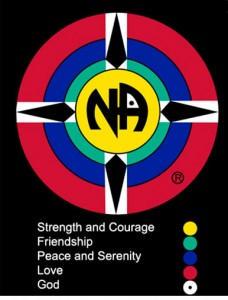The NA History Tree was orchestrated for one reason, facts. It was the hope of Paul Stuart that as many NA members as possible could have access to our written history. If you spend much time on the corporate web site you would think that NA began when the corporate Board of Directors took over World Services in 1998. Paul believed in finding evidence and the best place to discover evidence is in researching Primary Documents. Due to his untimely death, assembling the documents has fallen to Paul’s friends in the Fellowship.
In an effort to fulfill his wishes we’ve searched for as many original documents as possible and organized them in a way that we think he might appreciate. Enjoy your visit and share them with as many members as you want, but please don’t try to reprint them and pass them off as originals and sell for a profit. All of these documents are scanned copies of original Primary Documents that belong to all the members of NA. In memory of Paul, we hope that you use this research tool to discover the facts and then keep what you have by giving it away.
~ This was written by Paul who wrote this as a forum topic for ASC.
Tradition Four: Each group should be autonomous except in matters affecting other groups or NA as a whole.
The Basic Text says, “This means our groups are self-governing, and not subject to outside control.”
In their 1988 report to the WSC the The Select Committee on Service Structure said this: “Group autonomy gives each group the right to accept or reject any decision made in its behalf, even if that decision is otherwise supported or rejected by the vast majority of other NA groups.”
The Select Committee also said this: “If we take a step back and look closely we may conclude that the WSC (nor any service body) cannot speak as an ultimate authority. It is only meant to be the collective voice of our Fellowship, determining the mainstream of NA experience, which it has properly been delegated to do. The groups, utilizing their group conscience as an ultimate authority, in reality decide the force of any of our service decisions, not the participants of the WSC.”
But what about, “ . . . except in matters affecting other groups or NA as a whole.”
It is obvious that every group affects NA as a whole no matter what it does so what is the sense of this? It Works How and Why directs us to consider our spiritual principles in matters affecting other groups and how the world perceives us. The text gives us the freedom to ponder and consider the affect a group might have, on “other groups or NA as a whole” by any action, is given to the member’s spiritual connection and group conscience.
Let’s go to the horse’s mouth about this Tradition Four since this is where our Traditions come from who would know better the how and why. AA’s Twelve by Twelve says this: “This meant, of course, that we had been given the courage to declare each AA group an individual entity, strictly reliant on its own conscience as a guide to action. In charting this enormous expanse of freedom, we found it necessary to post only two storm signals: A group ought not to do anything which would greatly injure AA as a whole, nor ought it affiliate itself with anything or anybody else.”
The Twelve by Twelve tells a story of an early snafu of money, property, and prestige promoted by a member and group, where afterwards that member recapitulated and humbly corrected himself. In conclusion the Twelve by Twelve said this: “Thus it was that under Tradition Four an AA group had exercised its right to be wrong.”
It appears that the sense of the last phrase of Tradition Four is not about being contrary to customs or to the opinions of others but simply to not cause a bad name for NA or to confuse our purpose with that of others. It appears that the emphasis in Tradition Four is freedom, and freedom to follow our spiritual principles autonomously without rules and regulations from on high or other self-appointed controllers.
I should add that It Works How and Why says, “Group autonomy gives groups the creative freedom to find individual ways to carry the message.” and, “With an open-minded attitude, we are receptive to new ways of reaching addicts.”

